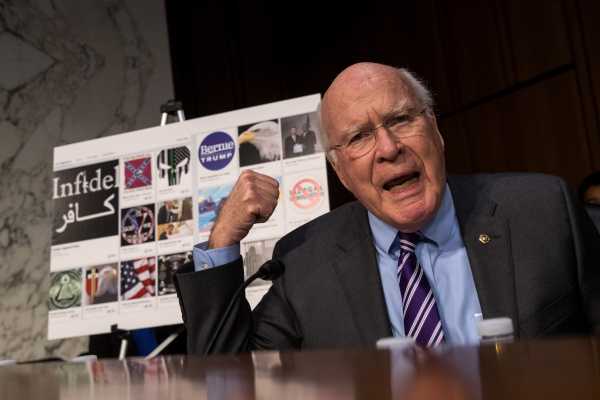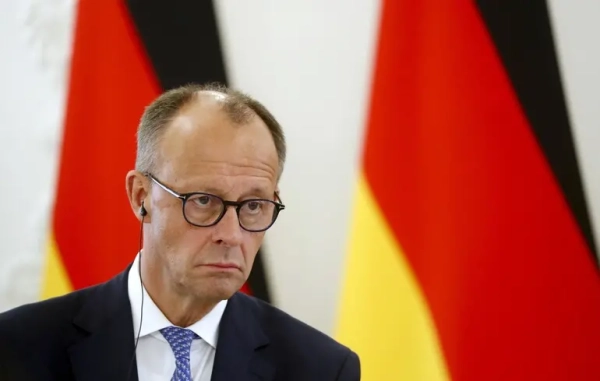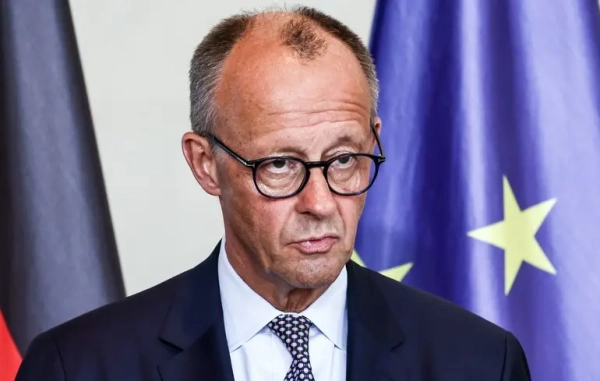
Over half of the Facebook ads bought by Russian groups during the 2016 election to sow discord and division were tied to race, according to a USA Today analysis of the more than 3,500 ads published by House Intelligence Committee Democrats on Thursday. And the closer to the election, the more race-related ad buys there were.
Democrats released ads bought by the Internet Research Agency, the Kremlin-linked troll farm responsible for much of Russia’s disinformation campaign in the US, from 2015, 2016, and 2017 this week. (You can view all of the ads here.) The ads paint a picture of how Russians used Facebook to stir up controversy and play on pre-existing divisions and biases.
USA Today analyzed the ads to look for common themes and messages. Their findings: of the 3,500 ads published, about 1,950 made express references to race. They were seen about 25 million times. About a quarter of the ads dealt with crime or policing, often with a racial connotation. And the IRA would often launch simultaneous ads with divergent messages — one would encourage support for pro-police groups, and the other would mention how police treat black people.
The pace of race-related ads picked up over time. According to the analysis, racial ad buys averaged about 44 per month from 2015 through the summer of 2016. Between September and November 2016, in the months before the election, racial ad buys were at 400 per month. And the race-related ad buys didn’t stop once Donald Trump was elected — the IRA bought 900 more race-related spots from November 2016 to May 2017.
USA Today honed in on one specific campaign to explain how it worked:
“When you’re stoking fear to get a negative action directed at a targeted population based on race, and when a foreign nation uses that fear to subvert and undermine democracy, that’s become a serious problem,” Derrick Johnson, president and CEO of the NAACP, told USA Today. “It’s a warning for technology companies and corporations that private citizens have entrusted with their privacy to receive factual information.”
USA Today also found ads related to immigration, guns, and event promotion. Only about 100 ads overtly mentioned supporting Donald Trump or opposing Hillary Clinton.
The Russian Facebook ad problem is one that isn’t going away
Facebook initially downplayed its role in influencing the 2016 election and Russia’s use of the platform for its disinformation campaign. Just days after the election, CEO Mark Zuckerberg said the idea that fake news on Facebook influenced the election was a “crazy idea.”
But the company’s tune has since changed. Facebook has publicly acknowledged that Russian-linked accounts bought ads on its platform and has rolled out a tool to let users see whether they were following Russian propaganda. Zuckerberg in a call discussing Facebook’s quarterly results in November said he’s “dead serious” about cracking down on Russia and other nefarious activity on Facebook.
In April, Facebook said it suspended 70 Facebook accounts, 138 Facebook pages, and 65 Instagram accounts controlled by the Internet Research Agency. In testimony before the Senate the same month, Zuckerberg said one of his “greatest regrets” in running Facebook was that it was slow to identify Russian information operations in 2016.
Special counsel Robert Mueller in February indicted 13 Russian individuals for meddling in the 2016 election, 12 of which worked for the IRA.
According to the House Intelligence Committee Democrats, more than 11.4 million Americans were exposed to the IRA’s Facebook ads. And on the organic content end (meaning not paid for), Russia’s reach was even broader: the IRA’s 470 Facebook pages created 80,000 pieces of organic content that was seen by more than 126 million Americans. We still largely don’t know what any of that looked like.
Thursday’s ad dump is the latest chapter in ongoing incremental revelations about how Russia has leveraged Facebook and social media to influence US politics and exacerbate divisions among Americans.
A recent study out of the University of Wisconsin-Madison found that more than half of the sponsors of Facebook ads that featured divisive political messages ahead of the 2016 election were from “suspicious” groups with little or no paper trail to identify them. One in six turned out to be linked to the IRA.
“I expected that we would find some unknown actors in the digital media political campaign landscape, because there are some regulatory loopholes,” Young Mie Kim, the study’s lead author, recently told me. “The findings are a lot worse than I thought. It is shocking and surprising.”
Russia’s attempts to influence US politics through Facebook and other means is almost guaranteed to continue. Analyses like USA Today’s may help Americans to recognize race-related and other ploys to stoke divisions, but combating meddling is an ongoing project.
Sourse: vox.com






